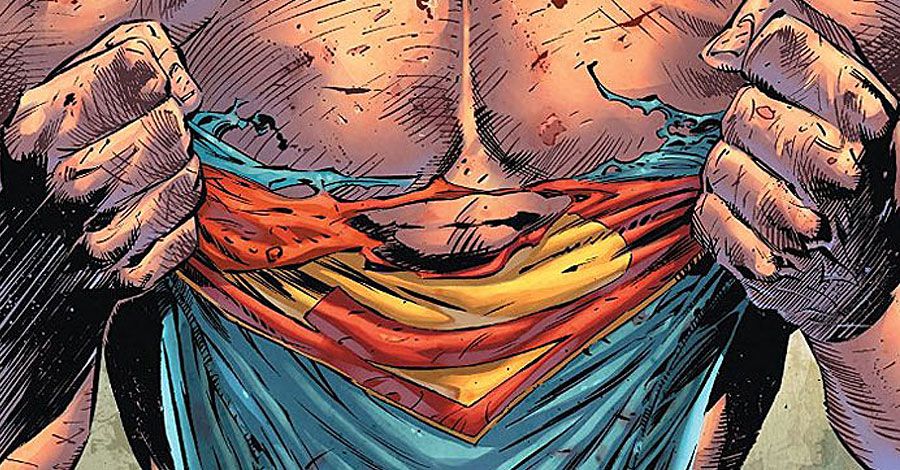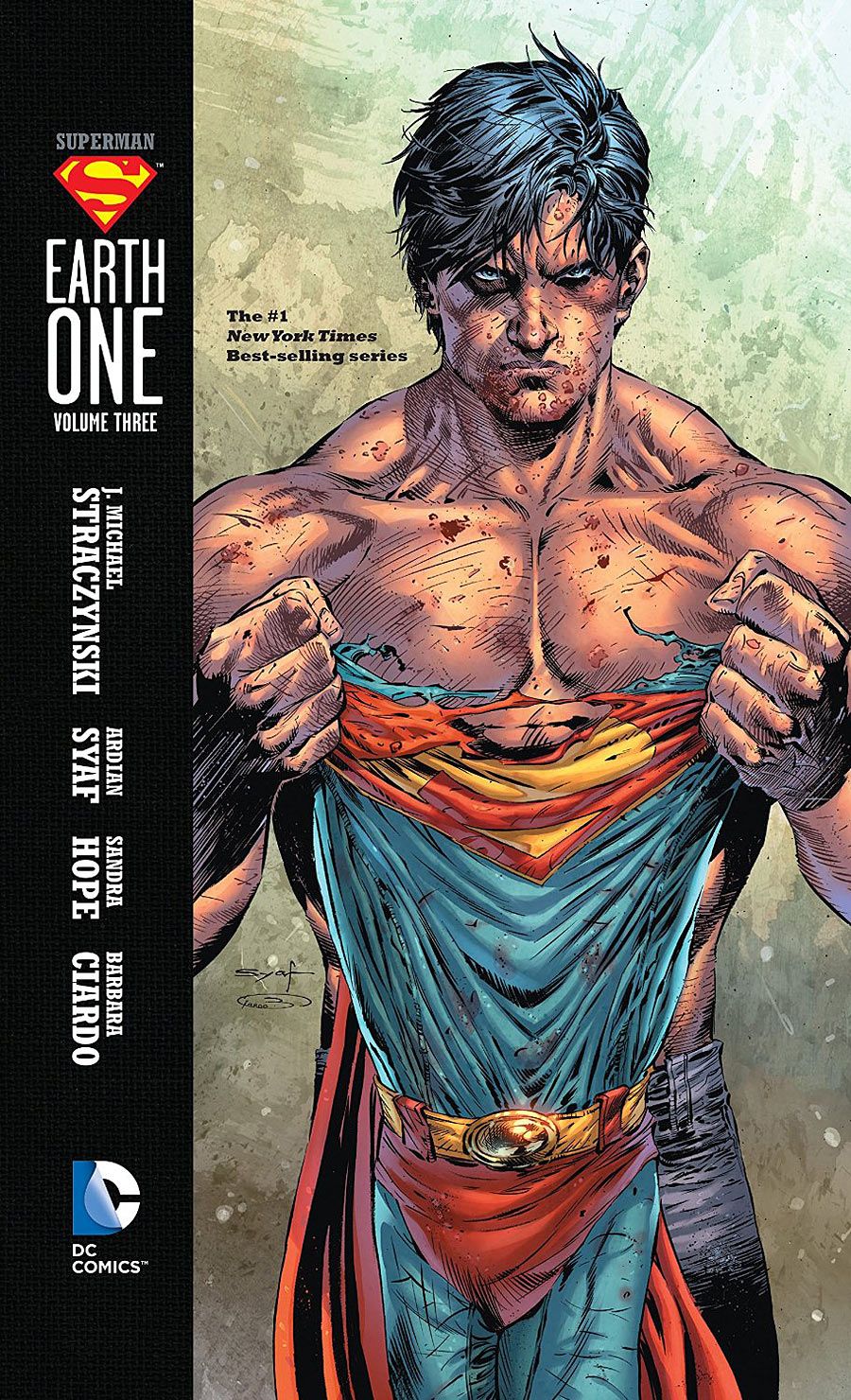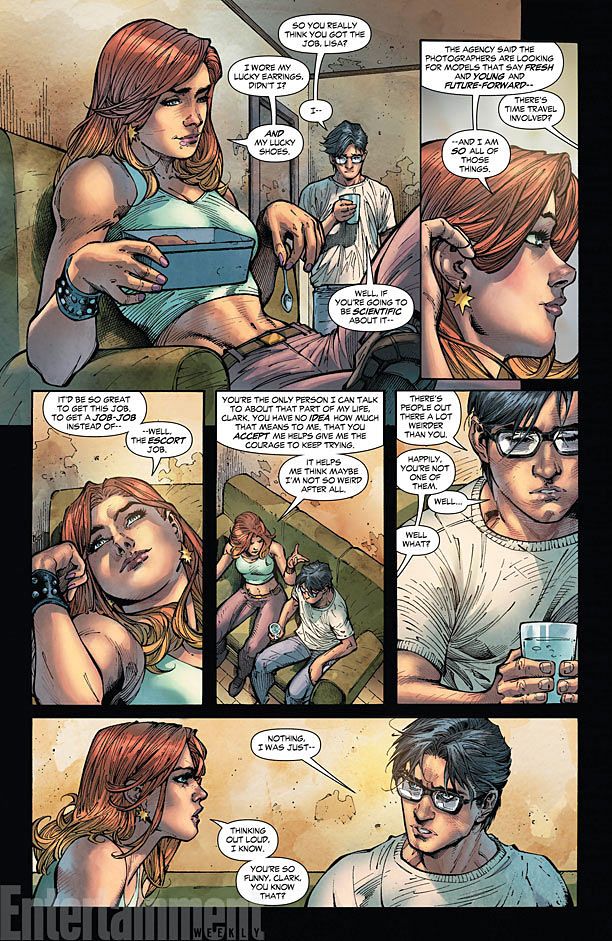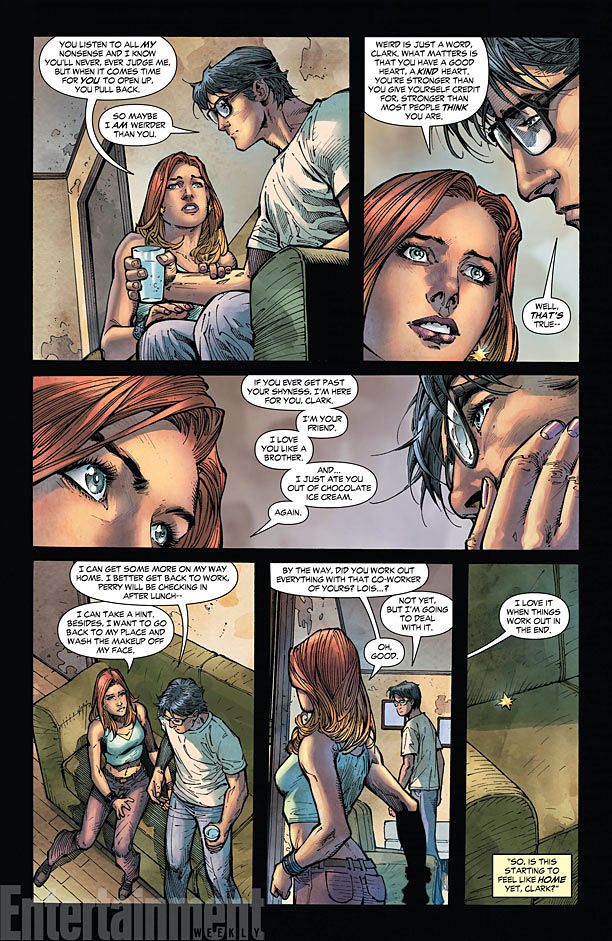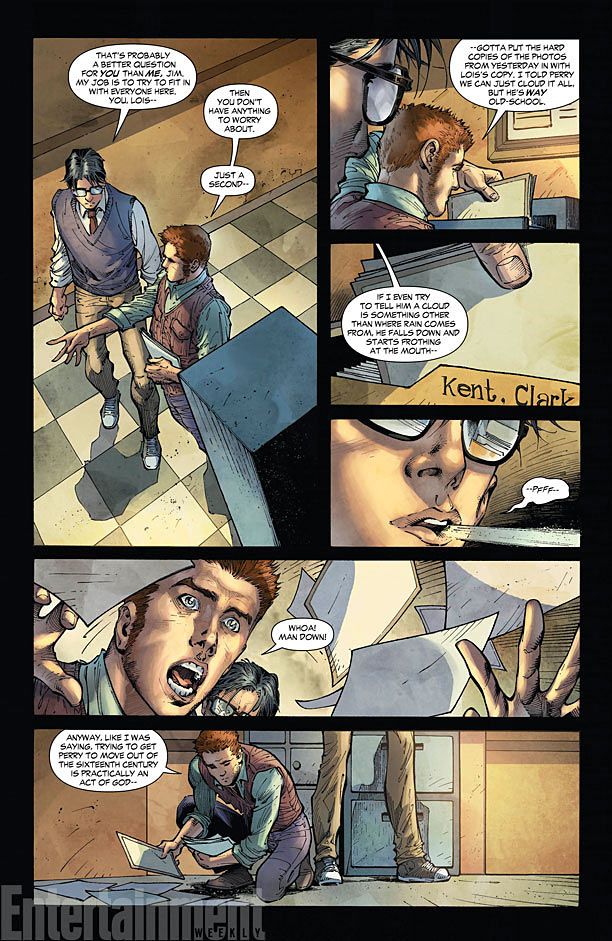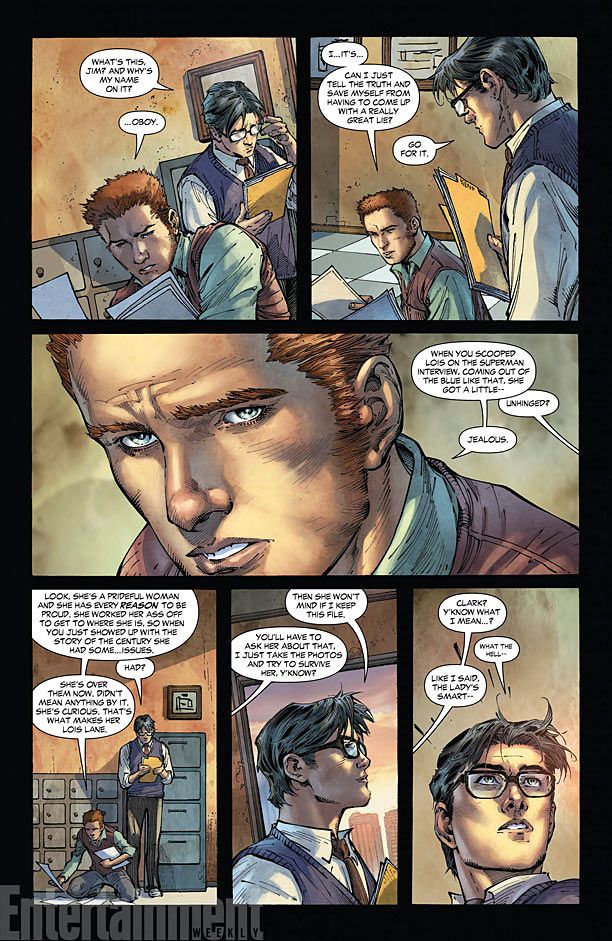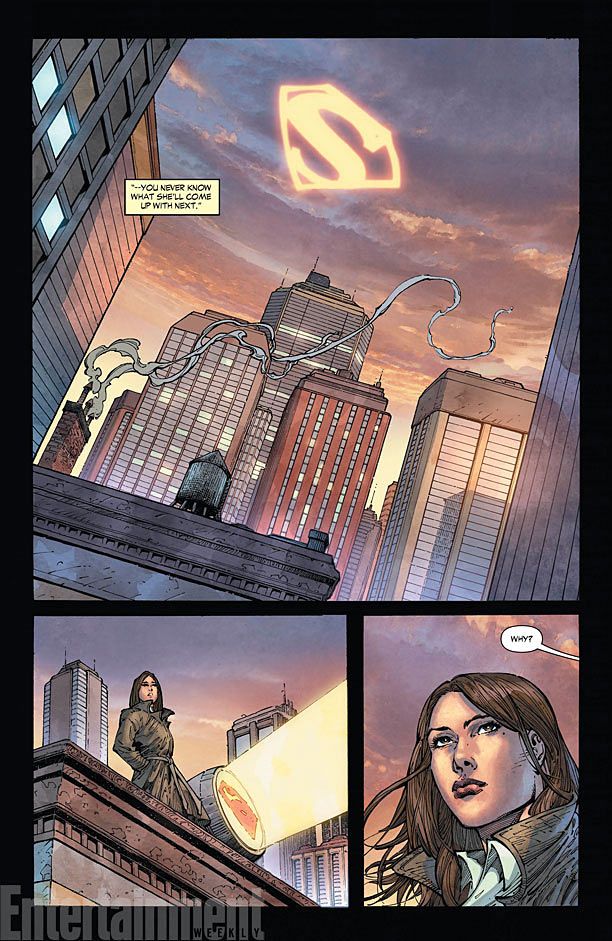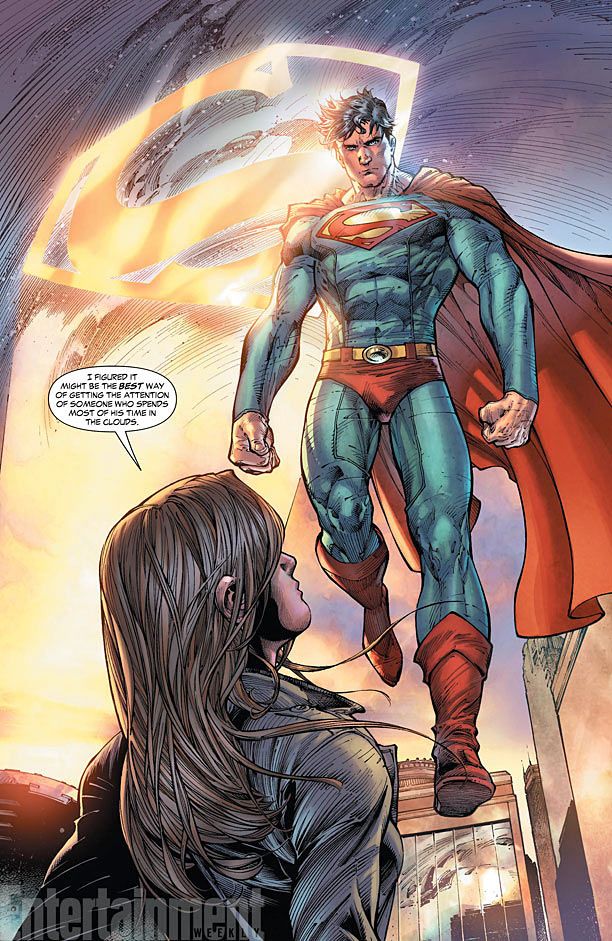This week, DC Comics released the third volume of its New York Times best-selling "Superman: Earth One" graphic novel series. The "Earth One" books reimagine DC's icons including Superman, Batman, Wonder Woman and the Teen Titans in a continuity-free setting that allows creators to explore their iconic natures and craft new stories for them.
In a deeply moving and personal interview, superstar writer J. Michael Straczynski opened up to CBR News about his difficult childhood with an abusive father and how the Man of Steel truly served as a symbol for his own personal strength and empowerment.
Joining forces for this volume with Indonesian artist Ardian Syaf, Straczynski also shared his thoughts about developing a Superman for millennials by not overthinking the mindset of a 20-year-old but by simply telling a story about a young man coming to the big city -- a young man who just so happens to be the Last Son of Krypton.
But not so fast, as Straczynski also introduces Zod to his re-imagined universe in this volume and gives Lex Luthor a makeover that is more jaw-dropping than Gene Hackman's toupee in "Superman: The Movie."
The always candid Straczynski also discussed developing the inevitable Lois & Clark relationship at a realistic (and respectful) pace and keeping Jonathan and Martha Kent's son grounded to his Smallvillian roots.
CBR News: In your dedication, you talked about Curt Swan as your entry point into the Man of Steel and Superman comics. What was it about his version that drew you in?
J. Michael Straczynski: The silhouette seemed very realistic at least to me as a kid. I loved the way he drew the Superman symbol. And there's something about the specific curves he did that I enjoyed but mostly, I responded to the gentleness and thoughtfulness that was in Superman's face. He just seemed like a really nice guy who just happened to have the capacity to smash the planet if he so desired.
That being said, it was probably more about discovering Superman at that time of my life, during which Curt Swan was the main guy doing that character. I come from a very hard background: we moved 21 times in my first 17 years because my father was a deadbeat, a drunk, a wife-beater and, frankly, a crook. He was the most evil man I've ever known. Not only did I have no lasting friends because it was never more than a few months before we moved again but for the first 17 years of my life, I had no stable home and every night was a parade of drunken violence. Nobody, and I mean that nobody, believed me when I said I wanted to grow up to be a writer.
I was a street rat and writing was kind of considered to be this ivory tower profession practiced by guys with pipes, English degrees and corduroy jackets with leather elbow patches. That wasn't me.
Superman was all about the idea that you can do anything if you put your mind and your back into it and no matter how much you hit him, you couldn't hurt him or stop him, which in a violent household was kind of an important message for me. He was also the opposite of my actual father: he kept his promises, he was kind to women, he protected his friends, he was idealistic -- that character, that ideal, sustained me through some pretty horrific times. So I bonded to Superman and the surrogate, Silver Age Superman family, like a baby duck.
In your dedication, you also talked about each generation needing "their" Superman. Why do you feel your version work for the millennials?
I didn't set out consciously to say, "Okay, millennials like this so I'll do that" because I think that way madness lies, it also makes the writing forced and false. It was more a matter of simply saying, "Okay, if Clark arrived in Metropolis today, right now, as a guy in his early 20s, trying to decide what to do with his life, what would that look and feel like?" and going from there. Which is also where a lot of other folks in their 20s are right now -- facing an uncertain world of diminished opportunities, not sure where or how they fit in with it all and trying desperately to figure it out.
This isn't Superboy, he's a man in his 20s, but he's never been Superman before and now that he's been revealed to the world he has to determine what that means and what he should be doing with his life and his abilities.
In Volume 3 your Big Bad is Zod. Unlike previous appearances, Zod didn't arrive on Earth and immediately confront Kal-El with heat vision blazing. What was your inspiration for creating a Zod with an ability to take pause and assess the situation while possessing such a high level of political acumen?
I didn't want just a big, hulking guy who leads with his chin. He has the same basic power set as Superman, so in that sense they're on par. What would then make Zod scarier is if he's smarter in some ways: a military tactician, a thinker, a planner. He's a warrior, and Clark is not, and that could and very nearly does tilt the balance the wrong way.
Lana Lang. Lois Lane. Lisa Lasalle. I'm seeing a pattern here. Lisa's relationship with Clark tells us a lot about Clark in the Earth One Universe. Why did you choose to create a new L.L. for Clark as opposed to Lana or Lois? And why do think she's worthy of Clark's love?
Clark cares for Lisa a great deal, considers her a friend and perhaps even loves her as a friend, but he's not all the way there yet. He's kept a distance from her since the day he arrived, because that's what he's always done with other people, and how some of that wall comes down and he has to figure out how to deal with that and what it means, which is another resonant aspect of the character.
In terms of Lois... when you write, you can either lean into the result or lean into the process, and I've always been more of a process kind of guy. Some folks online criticized the second volume because Lois and Clark, or Lois and Superman, weren't instantly involved. We all know they get together eventually, so why not explore that process a bit? Rather than have Lois immediately fall into Superman's arms, which seems a little disrespectful to her character in my view, how about having Clark/Superman earn that affection? Earn that relationship?
Bear in mind the context as well. Clark just came out of nowhere and scooped Lois on the interview of the century, so she's going to be naturally suspicious of him. That will take time to overcome and we deal with it a bit in the third volume. As for Superman, he's the story she's covering, and every -- every -- journalist knows that you cannot allow yourself to get emotionally involved with the story you're covering. You have to do everything you can to retain your integrity and objectivity as a reporter. So he will have to overcome that.
Love has to be respectful, and it has to be earned, so that journey also needs to be chronicled.
And if they ever grow to far part, Lois has her trusty Super-signal if she wants to connect. [Laughs]
The Super-signal was really intended more as a bit of comedic relief, which does turn dramatic at one point, than a major serious plot point. Originally her dialogue mentioned that this worked for "that bat-guy in Gotham" but DC felt it was too inside for that reference, so we changed it. That aside, she's definitely not out of any picture. He just needs to win her rather than me handing her over to him on a silver platter.
I love your interpretation of Martha Kent. And I love how Clark, when the chips are down, stops mid-fight to reach out to his ma to tell her he loves her. She knows Clark so well, even getting him to consider his feelings for Lisa. ("Never turn your back on love Clark... in whatever form it takes.") With all of the reinventing you've done with the Superman mythos, was taking the Smallville out of Clark Kent even an option?
No. Those are his roots. That's what humanizes him and keeps him grounded. Take away Smallville and he's just another really strong guy.
Not giving away the farm, pardon the pun, but the big mind blow in this volume is the massive change in Lex's status quo. Why was it important to you as a storyteller to make such a quantum shift to the very core of Superman's iconic archenemy?
Because this is Earth One, we have some flexibility in what elements we keep or change from the original mythos. Lex Luthor is Superman's enemy. And that's where the books leave this particular Lex. It's just not what one might normally expect, and the dynamic involved, in my view, actually makes this Lex substantially more dangerous.
Superman doesn't undergo such a dramatic physical change, but standing in front of the United Nations and screaming, " What the hell were you thinking?" certainly isn't my father's Superman. Or even mine. Is this Superman's youth and inexperience showing or does he just have more of an edge than Christopher Reeve?
Yeah, he raises his voice, which is understandable because many of those he's addressing were either directly or indirectly complicit in trying to get him killed, so I think the response is absolutely justifiable, but after getting their attention, he quickly shifts gears to a more respectful tone. He gets it. They're afraid of him. He acknowledges that and that he made some mistakes, which he will try to correct.
And with a line like, "I'm not the problem. The problem will be whoever is standing behind me when I fall," can we expect to see more of Lex in "Superman: Earth One," Volume 4? That is, if you are coming back for Volume 4...
I definitely want to continue to do the books.
As for Lex, having set that particular gun on the table, there might be some wisdom in just letting it sit for a while, knowing that it's going to be used sooner or later, and let the suspense build so that when Lex reappears, it's big and significant and dangerous as all hell.
Awesome. Finally, another great line from this volume is, "How much can one person with an idea... or even just the will to speak out... change the world?" When you look at recent events like the Je Suis Charlie movement and this week's Auschwitz 70th anniversary, we realize maybe the world really could use a Superman. You mentioned the importance of Superman to your own life but what role does the Man of Steel play as a beacon of hope in our lives today or is that too much pressure a 75 year-old comic book superhero?
I think that all the hopeful elements of Superman's character that drew me in as a kid are still there on full display, and as needed as ever. I may have mentioned this elsewhere, but one night about a year ago or so I was watching the evening news and there were riots going on in the Middle East, there were Occupy-style protests going on here in the United States and there were problems in Nigeria. And in the background, in all of those stories, whether wearing a scarf in a riot or in a street or behind the barricade, there was one guy wearing a Superman t-shirt. It's so ubiquitous that you hardly notice it anymore, but it's there, wherever people have to believe that they can change the world, where hope is necessary, where possibilities for justice can still be fought for. And we need that symbol, that hope, that character now just as much as ever. Maybe more.
"Superman: Earth One," Volume 3 by J. Michael Straczynski and Ardian Syaf is available now.

